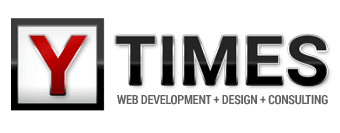These instructions are for Template Generator.*
- Log into your Catalog Manager.
- Click "Manage Your Tables"
- Click "Upload"
- Click "Download Data"
- Download your store data and save the file (data.csv) in the same directory where you installed "Template Generator" (normally c:\program files\Ytimes Template Generator.)
- Start "Template Generator".
- Paste your source HTML into the big text box. Your source should include
store tags in the correct syntax, or one or more of Template Generator's
shortcut tags. If you include store tags, replace the
product IDs with [ID] as in:
<!--#ystore_catalog id="[ID]" field="name" -->
- If you want <TITLE> tags to be generated automatically from the names of your items, check the box labeled "Generate <TITLE> tag from item name" (note that FrontPage 2002 and DreamWeaver does not permit any tags inside the <TITLE>..</TITLE> of the page or inside the description meta tag. Therefore you should not edit Template Generator-created pages in FrontPage 2002 or DreamWeaver if you checked the "Generate DESCRIPTION meta tag" box.)
- If you want description meta tags to be generated automatically from the abstract field of your items, check the box labeled "Generate Description meta-tag from item abstract". (note that FrontPage 2002 and DreamWeaver does not permit any tags inside the <TITLE>..</TITLE> of the page or inside the description meta tag. Therefore you should not edit Template Generator-created pages in FrontPage 2002 or DreamWeaver if you checked the "Generate DESCRIPTION meta tag" box.)
- Click the "Generate Item Pages" button.
- Template Generator will read your store data file, and generate one HTML page for each item found in the data file. The HTML pages will be saved in a sub-directory called "Pages" under the directory where you installed "Template Generator". The file name of each page will be the same as the ID of the corresponding item.
Template Generator Shortcut Tags
In addition to the standard Yahoo! Merchant Solutions store tags, Template Generator allows you to use a number of shortcuts in your HTML source. These shortcuts expand to the corresponding store tags, so you don't have to worry about making a mistake when including store tags in your HTML source. The supported shortcut tags are:
[$id$] *
[$name$]
[$code$]
[$price$]
[$sale-price$]
[$ship-weight$]
[$orderable$]
[$taxable$]
[$image$]
[$options$]
[$headline$]
[$caption$]
[$abstract$]
[$icon$]
[$inset$]
[$label$]
[$gift-certificate$]
[$need-bill$]
[$need-payment$]
[$need-ship$]
[$personalization-charge$]
[$availability$] *
(while according to Yahoo's
online help
id and availability can be used in store tags, they don't appear to work
correctly. Id returns a "Data Not Available" error. Availability also returns a
"Data Not Available" error when not set. When set, it returns nothing. A fix
from Yahoo is expected.)
Please Note: the above shortcut tags are understood only by Template Generator. If you include them in an HTML page in your Merchant Solutions Account, they will simply print out on the page as these special tags mean nothing to the Catalog Manager.
Example:
<html><head> <meta name="GENERATOR" content="Microsoft FrontPage 5.0"> <meta name="ProgId" content="FrontPage.Editor.Document"> <meta http-equiv="Content-Type" content="text/html; charset=windows-1252"> <title>[$name$]</title> </head>
<body>
<table border="0" cellpadding="2"> <tr valign="top"> <td valign=top><!--#ystore_catalog id="[ID]" field="image" format="html" --></td> <td valign=top> <h1> <!--#ystore_catalog id="[ID]" field="name" --></h1> <!--#ystore_catalog id="[ID]" field="caption" --> <p>Regular Price: [$price$], Sale Price: <font color=red>[$sale-price$]</font></p> </td> </tr> </table>
</body>
</html>
